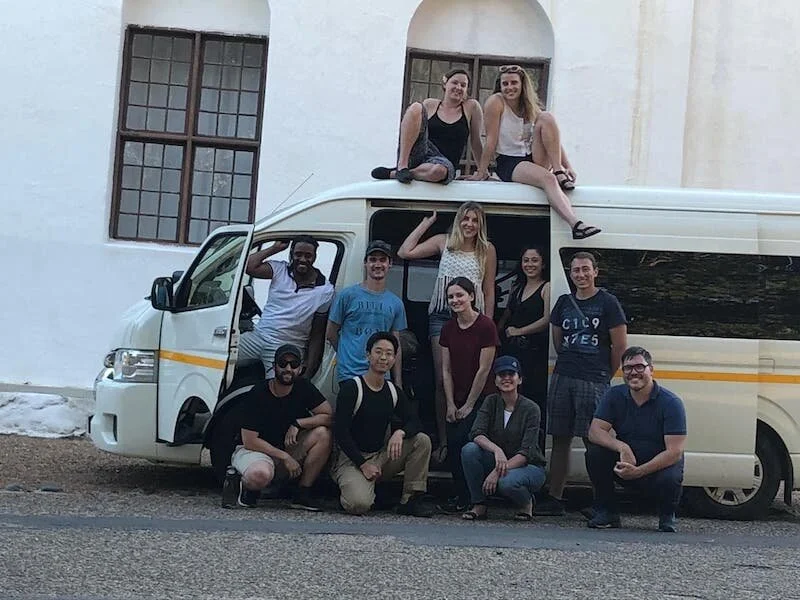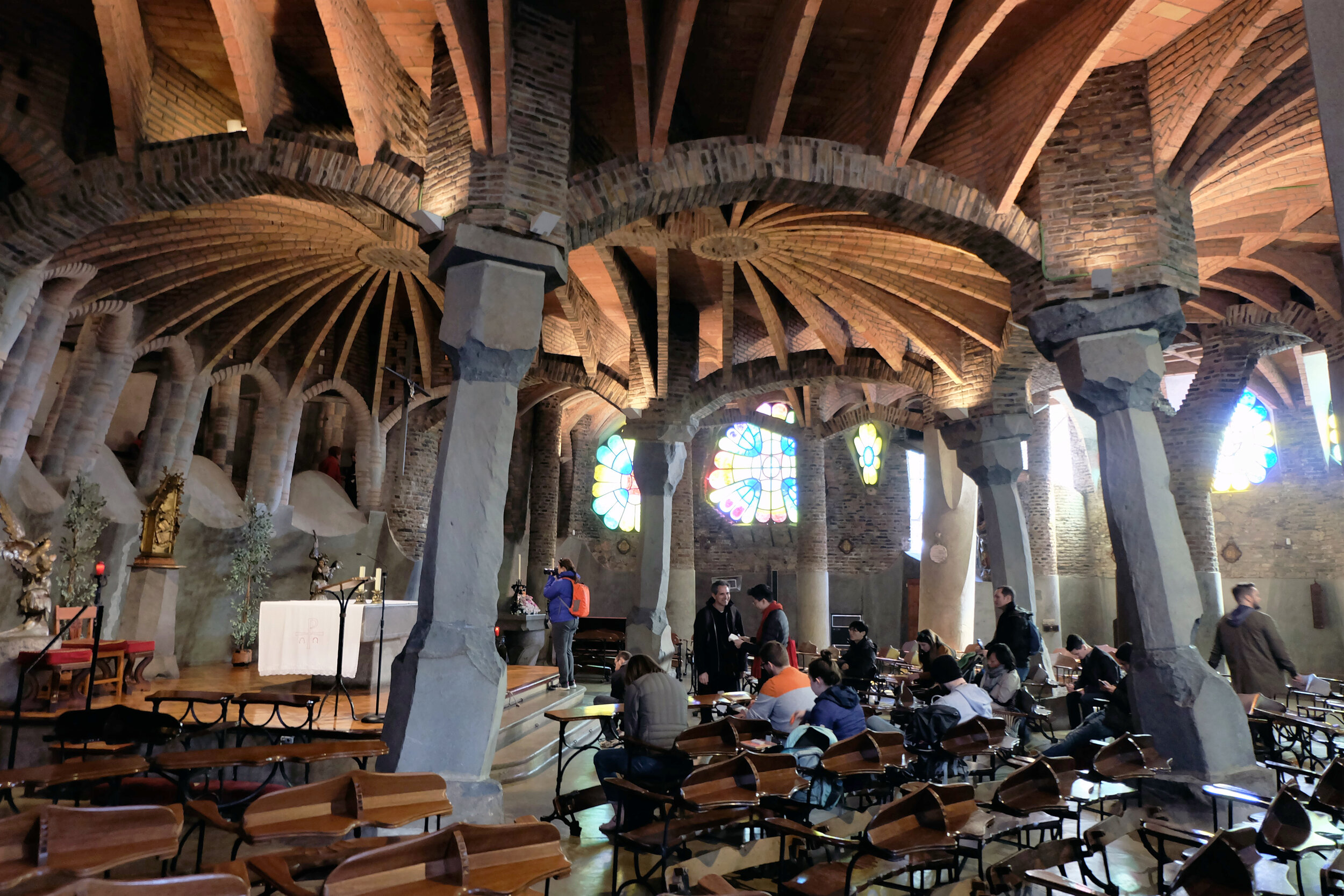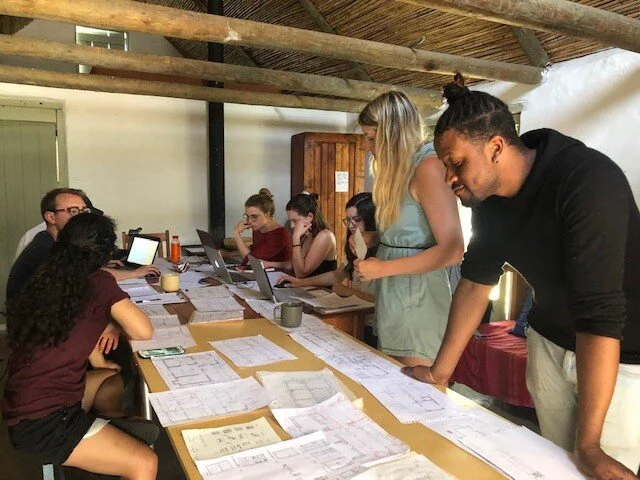Barcelona to Cape Town
Study trip to Cape Town, South Africa, 2019
One of the highlights of Gabrielle Argent’s experience at Carleton was the chance to travel.
She and her classmates had barely settled in when they were off to Barcelona, Spain, for nine days in the second semester. And the school paid for it.
“That’s the thing students live for,” says Gabrielle, “They want to go on these cool adventures and learn from different people in different places.”
The study tour is part of the first-year immersion experience for students in Carleton’s three-year master of architecture stream. The school funds students in this cohort to travel with faculty.
Carleton students visiting the Church of Colònia Güell, an unfinished work by Antoni Gaudí
The students soaked up an intensive introduction to architecture, including lectures about the city’s remarkable structures and unique urban plan. They saw buildings by Gaudi and took walking tours with Catalan experts. Another great moment was visiting the offices of RCR Arquitectes, winners of the 2017 Pritzker Prize.
Gabrielle remembers thinking: “How is this real?”
“Once-in-a-lifetime”
The next year, in 2019, Gabrielle was part of a group of 11 students who went to Cape Town, South Africa, for two months to study with architects and professors from the School of Explorative Architecture (SEA).
Students in the studio in Cape Town
In Cape Town, the group explored gentrified areas in the inner city, in the context of post-Apartheid South Africa, and made analyses of important sites reflecting the shifts over the past several decades.
In a township outside the city, the students worked with a non-profit organization developing a town centre. They designed potential projects for the site and built one of them – a pergola to cover a market.
The Carleton students also travelled to a remote community devastated by fire. They spoke with town officials and residents and documented the remnants of burned homes. Their findings formed the basis of a report outlining the need for funding to rebuild.
“It was a once-in-a-lifetime opportunity,” she says.
Some of the master of architecture travel opportunities are covered by the school; with other trips, students fund themselves through loans, or summer work. Carleton strives for a balance, so that even students who cannot afford to travel abroad have the opportunity for at least one funded trip.
In recent years, MArch students have travelled to Serbia, Sao Paolo, and Israel/Palestine. Others have stayed in Ottawa, where they were guided in their Option Studio by visiting faculty from London, New York and Portugal.
“Now people listen to me”
Gabrielle, who is now 29, graduated in spring 2020. She can put MArch after her name.
Looking back on her three years of study, she says, “overall, the experience was amazing. I learned so much. I met a lot of amazing people, had a lot of really great professors.”
Image from Gabrielle Argent’s thesis
She regards her thesis, titled Mobility, Voice and View: Unpacking the Future of Cape Town’s District Six, as her greatest accomplishment.
Inspired by her trip to South Africa, it focused on a neighbourhood from which Black and mixed-race people were removed during apartheid and forced to live in undesirable townships outside the city centre.
“I pushed myself to learn and think critically about something I think is important,” she says. “It’s on race and inequality, and ways we can start rethinking that within the built environment. It’s a comment on how people can start creating their environment. These are the themes I’m still interested in pursuing and looking at in the future.”
Gabrielle’s next step is to find an intern job at an architecture firm and work toward becoming a licensed architect. She’s also considering pursuing a doctorate.
“I’m proud of myself,” she says. “At the beginning of the whole program, I didn’t know what I was doing at all. It’s weird. Now, people are asking my opinion on things. I’m trying to get over the fact that maybe I do know a little bit about what I’m talking about.”
Readers: Share your thoughts in the comments box below.




